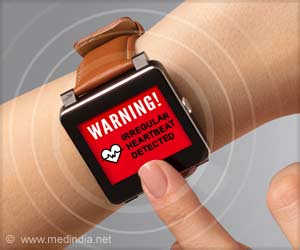Atrial Fibrillation Management: Losing weight and following healthy lifestyle habits such as eating healthy, exercising regularly, quitting smoking and avoiding alcohol can protect your heart from atrial fibrillation (AFib).

‘Atrial Fibrillation Management: Losing weight and following healthy lifestyle habits such as eating healthy, exercising regularly, quitting smoking and avoiding alcohol can protect your heart from atrial fibrillation (AFib).’
Read More..




Atrial fibrillation (AFib or AF) is an abnormal heart rhythm that affects at least 2.7 million people in the United States and is increasing as the population grows older. In AF, the upper chambers of the heart, called the atria, beat rapidly and erratically, interfering with proper movement of blood through the chambers, which can allow blood clots to form. Parts of these clots can break off and flow to the brain, causing an ischemic stroke. People who have AF have a five-fold greater risk of having a stroke compared to people without the condition.Read More..
To reduce stroke risk in their patients, health professionals use medications or procedures to regulate the heart rate, prevent abnormal heart rhythms (AF) and reduce blood clotting.
"While established medical treatment protocols remain essential, helping AF patients adopt healthier lifestyle habits whenever possible may further help to reduce episodes of AF," said Mina K. Chung, M.D., chair of the writing group for the scientific statement, and a cardiologist and professor of medicine at the Cleveland Clinic.
Weight management with weight loss, nutrition interventions among individuals who are overweight and appropriate, individualized physical activity plans to increase fitness are three lifestyle modifications that have the potential to benefit AF patients.
Obesity can contribute to enlargement and stretching of the heart's upper chambers, changing the way the chambers work and making AF more likely to occur and to be persistent rather than occasional. In an Australian study, people who were overweight or had obesity and lost at least 10% of their body weight were less likely to develop AF or to have it become persistent; and, in some cases, persistent AF became intermittent or disappeared entirely.
Advertisement
Regular, moderate physical activity does not increase AF risk and may help in preventing and treating the condition. However, the statement notes that extreme levels of physical activity, such as that undertaken by endurance athletes and professional football players, may raise the risk of AF.
Advertisement
Other lifestyle habits that raise the risk of AF include smoking and moderate or high alcohol use. Smoking not only raises the risk of getting AF, it also reduces the effectiveness of a treatment for AF called ablation (a procedure to destroy cells that generate abnormal rhythms). Patients should be counseled to stop smoking and may be referred to a smoking cessation program.
Studies have also found that moderate or high alcohol use - drinking more than 7 drinks/week in women and 14 drinks/week in men - raises the risk of AF. In a recent study, reducing or abstaining from alcohol was shown to improve heart rhythm control.
Although drinking caffeinated beverages has not been shown to increase the risk of AF, about 1 in 4 people with the condition report that it can trigger an episode according to several studies noted in the statement.
The scientific evidence on lifestyle and AF is limited because the studies on the subject are mostly observational, which can identify links but cannot prove cause and effect.
"We need more research in this area, including randomized trials (which can prove cause and effect) to help determine the effects of and the best ways to achieve long-term, lifestyle and risk factor modification for our patients with AF. In particular, we need further work on the effects of high intensity and other physical activities, and studies on the need for and effects of screening and treating sleep apnea for AF. However, the data emerging support the beneficial effects of lifestyle modification to reduce AF and are a call to action to develop and utilize integrated, multidisciplinary teams and/or structured programs that can facilitate intensive and comprehensive lifestyle counseling for our patients with AF. We encourage health care teams to consider lifestyle interventions in addition to medical management for all patients with AF," said Chung.
Source-Eurekalert















